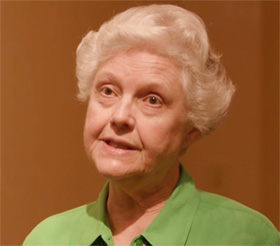Watch
Facilitating active participation of all team members falls to the staff liaison, chair of the PFAC or committee, or researcher leading the discussion. Effective facilitators are adept at creating a safe environment for all members to speak freely without concern. They know how to guide discussions by asking the right questions, guiding participants through self-reflection, redirecting conversations as needed, and assuring that all voices are heard and respected.
Participants are more likely to be active participants if facilitators:
- Use adult learning strategies, balancing the time spent listening to presentations, participating in discussions, and completing activities.
- Match activities to members’ strengths by providing opportunities for those who like to express ideas and those who are more task-oriented.
- Encourage everyone to actively listen to others as well as participate in discussions.
- Manage group dynamics.
- Recognize the need for breaks.
- Create engaging options for virtual participation (via conference calls or webinars) should illness or other issues prevent in-person attendance.
As PFAs become more experienced with collaborating in research, offer opportunities for them to co-lead meetings or discussions.

Christine Norton, patient investigator, talk about her experience having her views respected in research meetings.
ACTIVITY: Magic Wand
Provide the opportunity for research teams and PFAs to quickly identify
gaps in current research, care, or services by asking them to wave a magic wand to fix a problem or concern.